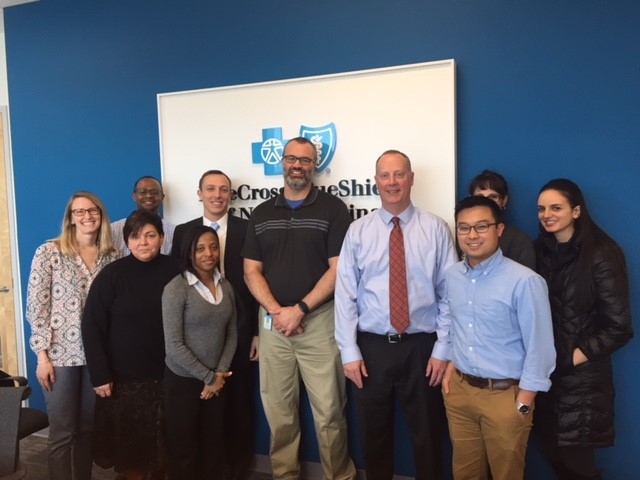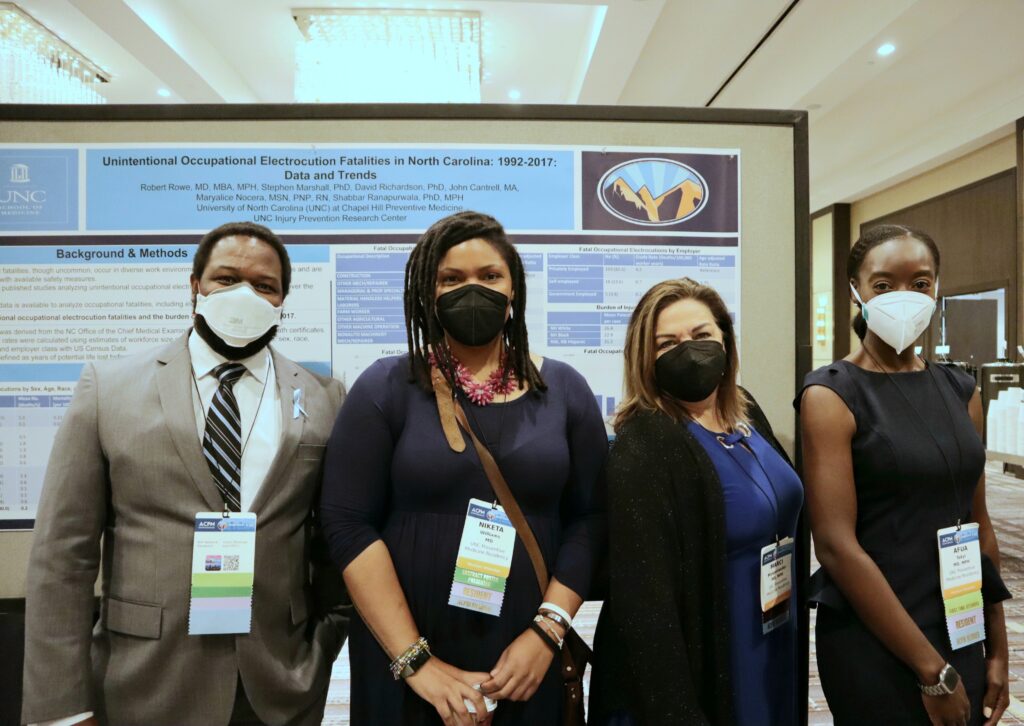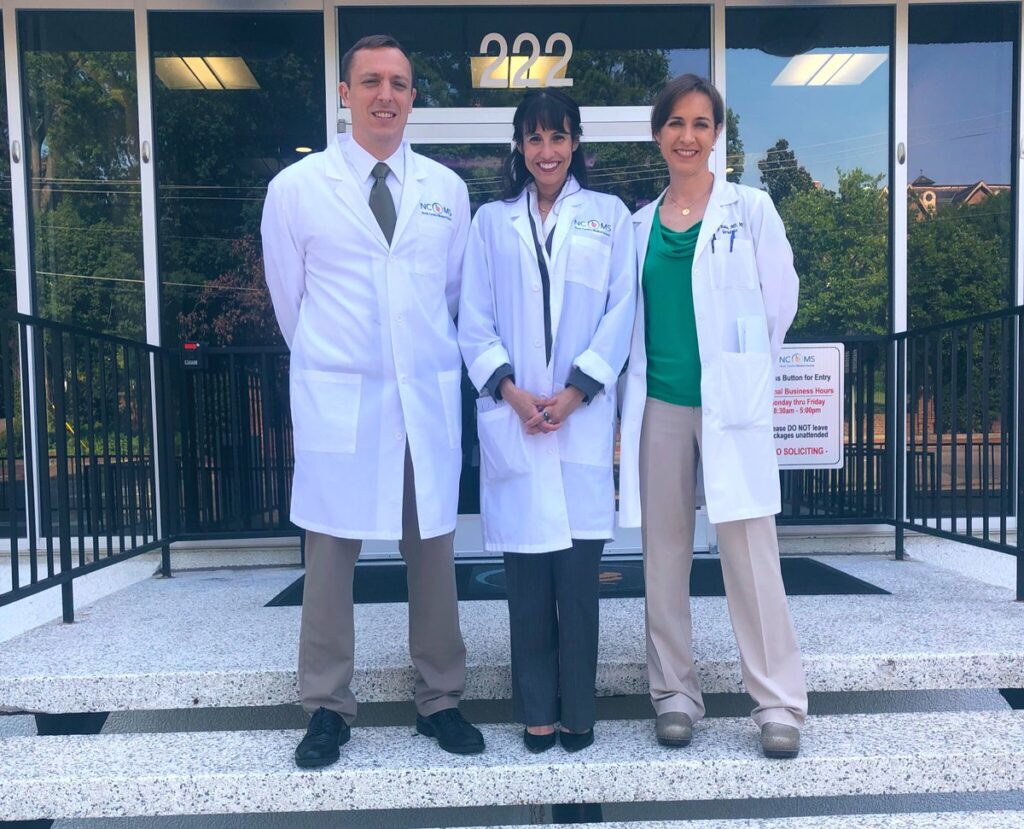Program Overview
Eligibility

Applicants will have completed at least one year of clinical medicine training following medical school. At UNC, most applicants have completed a residency in a primary care specialty, such as general internal medicine or family medicine.
Program Components
The two-year residency program consists of an academic year and a practicum year.
- Masters degree in public health: includes coursework in epidemiology, biostatistics, environmental health, and health care management (MPH degree program must be in-person, not online)
- Research project: residents design and implement a research project in their area of interest, which should culminate in publishable work
- Clinical: individual patient care in a variety of settings including primary care and behavioral medicine
- Public health agency rotation: eight weeks of practical experience at the local, state, or federal level
- Healthcare management and administration rotation: allows residents to engage in quality improvement project
- Clinical: individual patient care in a variety of settings including primary care and behavioral medicine
- Medical student teaching: co-teaching in clinical epidemiology for 2nd year medical students
- Electives in a wide variety of population health practice settings
Curriculum
Each resident must complete a Master’s in Public Health (or equivalent) degree in an accredited School of Public Health or department within a medical school. The MPH may be completed in any of the on-campus academic units of the UNC School of Public Health, so long as degree requirements do not significantly impinge upon completion of other Residency requirements. Residents must take required courses in epidemiology, biostatistics, environmental health, health services management and administration, and the behavioral aspects of health. Through the MPH or other didactic experiences, residents must also complete training in applied epidemiology, advanced biostatistics, advanced health services management, clinical preventive services, and risk/hazard control and communication.
The Preventive Medicine Residency Program offers a 9-month long series of seminars on a wide variety of preventive medicine topics each year. The series begins in late August/early September and concludes in early June.
Speakers include PMR faculty, faculty in the Schools of Medicine (Department of Social Medicine as well as other Departments) and Public Health, preventive medicine professionals in the NC Division of Public Health and other rotation sites, and other experts on public health issues.
Periodically, residents will lead journal clubs and present works-in-progress for feedback from residents and faculty. Every other year in May a trip to the state legislature is planned, including visits to legislators, committee hearings, and the general assembly.
Completion of one or more major research projects is a goal for every resident. Residents will apply the methodologic skills learned in the coursework to a public health area of interest. Residents may conduct independent research or work with a PMR faculty member, advisor or other faculty member on existing projects.
Each resident will complete at least one project using quality improvement and management information system strategies to fulfill one of the public health/general preventive medicine competencies.
Residents in the UNC Program have the opportunity to structure a practicum year with a wide variety of rotation sites. Our program’s philosophy is to minimize the number of required rotations and to allow the resident to develop an individualized plan for the residency.
Below are links to the most common sites for research and rotations for the UNC Preventive Medicine residents.
- UNC Cecil G. Sheps Center for Health Services Research
- UNC Center for Health Promotion and Disease Prevention
- UNC Injury Prevention Research Center
- UNC Lineberger Comprehensive Cancer Center
- NC Division of Public Health
- NC Office of Rural Health and Community Care
- VA National Center for Health Promotion and Disease Prevention
- Orange County Health Department
- Chatham County Health Department
- Wake County Human Services
- Piedmont Health Services
- Carolinas Center for Medical Excellence
- NC Institute of Medicine
- Family Health International
- IBM
- National Institute of Environmental Health Sciences
- Community Care of North Carolina
- UNC Family Medicine Clinic
Support for Residents
Preventive medicine residents may enter the program through 3 different ways:
- Acceptance into the program after completion of at least 1 year of clinical residency at an institution other than UNC. These positions are sponsored by support from UNC Hospitals as well as training grant support.
- Acceptance into the program after completion of part or all of a clinical residency at UNC Hospitals. These positions are also sponsored by UNC Hospitals.
- Acceptance into the program in conjunction with a compatible fellowship program at UNC, such as the Primary Care Research Fellowship, the Lineberger Comprehensive Cancer Center’s Cancer Control Education Program, and others. Residents receive stipends and other support from their fellowship programs but they participate in all activities of the residency.
For trainees directly supported by the residency, stipends are equivalent to those of clinical residents with one year of prior training. This stipend is considered full-time compensation; revenues generated by research work or by clinical activity related to this training will go to the program to offset training costs. Individual medical insurance and disability is provided for residents. In addition, an annual travel allowance is provided, and tuition for coursework is paid as program funds allow.
The residency provides office space, use of a computer, access to electronic mail and the internet, and general office support for residents. The UNC Health Sciences Library is conveniently located between the School of Medicine and the School of Public Health and has a large number of journals available electronically.



